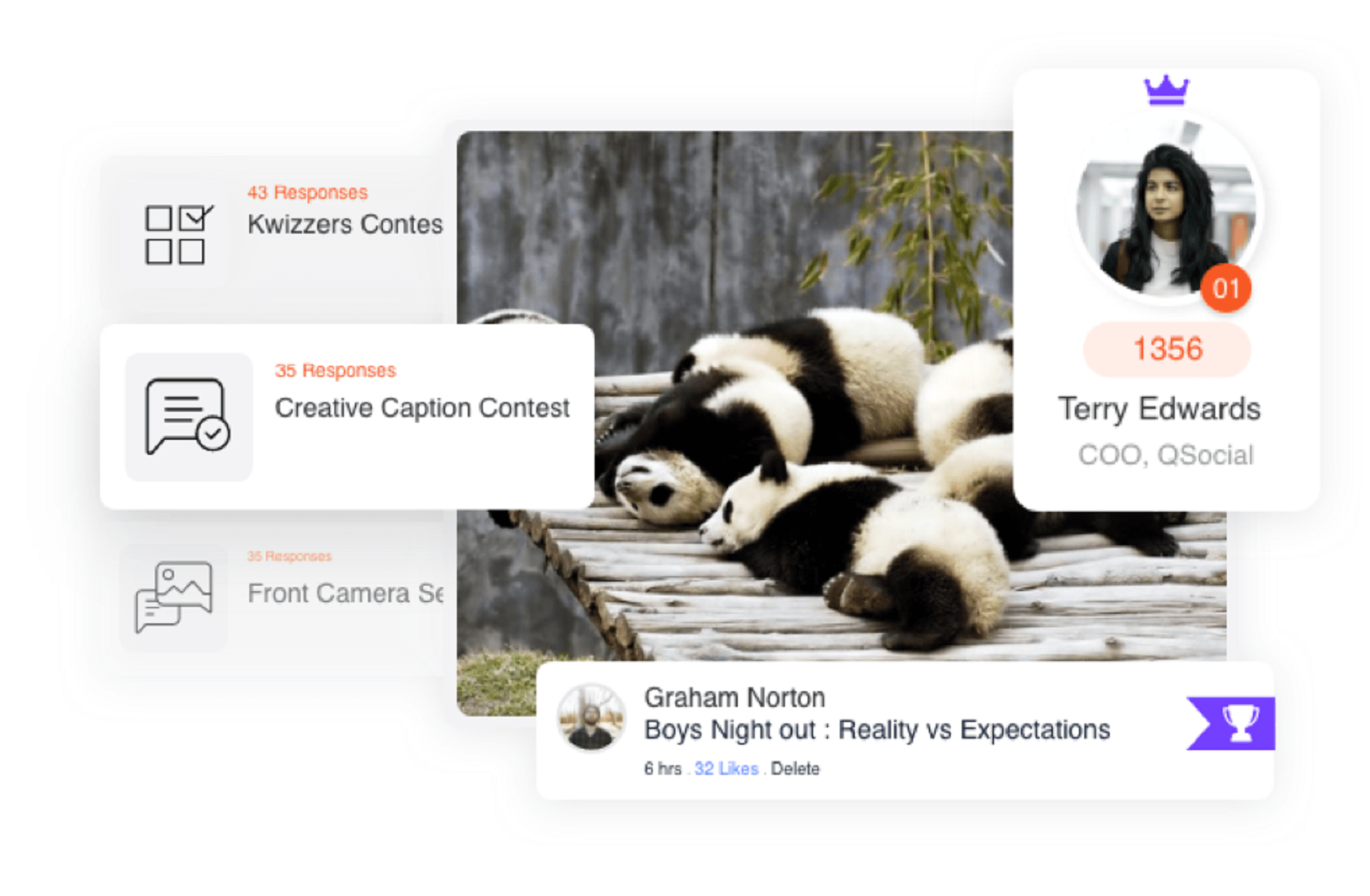
From minor catering gigs, large-scale corporate conventions to massive weddings, the event management industry in India covers a lot of ground, but in recent months, the reality has changed drastically. According to Statista, the revenue of the Indian event industry is estimated to be over INR 10K Cr in FY 2020-21 and that’s despite the Covid pandemic.
Even though physical events came to a standstill, virtual events took over and gave rise to a unique opportunity in the event management space. Players such as Hubilo, Hopin, Swapcard, Bizzabo and others have leveraged digital tools and automation to keep events going. And with technology coming to the fore, these platforms are also taking virtual events to the next level with interactivity, networking and live video features, and more.
Among the Indian contenders in the virtual events space, Hubilo’s journey has been underlined by a major pivot where the startup moved from physical to virtual events amid the pandemic.
“The pivot proved to be successful for us as we grew from 30 employees to almost 300 employees in a year and have expanded our footprints in the US, UK, Europe, Middle East, and Africa Markets,” said Vaibhav Jain, cofounder and CEO, Hubilo.
Founded in 2015 by Jain and Mayank Agarwal, Hubilo began as a virtual networking platform for attendees of live events. A year after its inception, Hubilo decided to pivot to an event management platform targeting medium to large-ticket-size events for enterprises. That was before the pivot to live virtual events in 2020.
Hubilo’s virtual event platform was ready within a month of the lockdown, the company claimed, with customers signed up in advance. At present, Hubilo has over 500 clients including Amazon Web Services, Siemens, Inc42, Roche, Tech In Asia, United Nations, Cognizant, Informa Markets, Fortune, GITEX and has conducted more than 5000 events. The startup claims to be witnessing an MoM growth of 50%. The founders attribute this success largely to the extensive features integrated into the platform that helps with engagement and data analytics.
The platform includes features like meeting tables, private rooms, meeting schedules, and gamification features. It also integrates third-party platforms like HubSpot, SalesForce and Marketo to analyse the event data and receive insights.
Hubilo also credits its customer service team as one of the key differentiators for the startup. “We have a dedicated team to lend support before, during and after the event to ensure the best experience. We also have kept our average response time between 30-45 seconds,” says Jain.
A Gamified Virtual Event Platform For Engagement

Gamification has become a rising trend even among enterprise tech applications — particularly those that involve multiple stakeholders. With the digital boost to the Indian economy, many platforms have started using it as a strategic move to gain long-term retention and drive engagement.
In the context of virtual events, gamification adds another layer of immersion for attendees by giving them a chance to interact with each other, the speakers and other stakeholders — just like in a real-world event. Hubilo has leveraged gamification tools such as polls, quizzes, contests, and leaderboards for engagement points, which helps drive activity from attendees for the virtual events. The event organisers can reward the most engaged attendees by keeping an eye on this leaderboard.
Besides gamification, other engagement tools such as lounges for networking opportunities for the attendees, virtual booths for sponsors and exhibitors, breakout sessions and demo rooms, live chats and event feeds help add colour and flair to virtual events, which are usually considered drab. All this has allowed Hubilo to achieve an engagement rate of 140%. The startup calculates engagement rate using a simple formula of the number of video views divided by the total number of attendees. As the videos are also stored by the platform for repeat viewing, the total percentage often goes above 100.
One of the biggest challenges in building a comprehensive virtual events platform is not having enough feedback from customers on the product and the platform. Considering that it is a completely customer-centric space, product development is dependent on customer needs and requirements. To try and get an edge on the competition, the startup leaned on data analytics and positioned it as the value proposition for customers. Once the minimum viable product was ready, Hubilo’s engineering and product teams proactively reached out to customers to add or remove features to bridge the gaps based on data.
Capitalising On ROI Through Data Analytics
Analytics can play a crucial role in the virtual event space. When an event has hundreds of attendees, getting feedback on the engagement of various sessions as well as the journey of attendees throughout the event can give the client deep insights into what worked and what didn’t, but also on which attendees could become potential customers for the client based on their engagement in sessions and booths and the relevant ways to target them.
When used effectively, analytics from an event could lead to monetisation opportunities for businesses. At present, Hubilo’s platform can host up to 2 Mn attendees at any given point, so there are plenty of data points that are generated from such a huge audience.
To capitalise on the same, Hubilo’s spread of analytics comprises over 50 data points to produce a comprehensive report around events. The platform collects data on attendee behaviour, session engagement, speaker’s reception and profile views, the number of business cards dropped and profile views in sponsor booths, the total number of meeting requests, the conversion rate for upselling and cross-selling and more.
With all the efforts, since its launch, Hubilo’s platform has registered a total of 2 Mn attendees across 100 countries.
“Whether hosting a virtual or hybrid event, using a platform that provides real-time analytics and insights across measurable metrics is helpful in understanding not only the ROI for the current event but also in developing strategies for future events,” says Agarwal, cofounder and CTO, Hubilo.
Future Plans And Newer Models
As virtual events have taken over the world, Hubilo sees great expansion opportunities. With existing headquarters in San Francisco, a base office in Bengaluru, the startup is in process of acquiring an office space in London and expanding its overseas team size. It further intends to dive deeper into APAC, Middle East and African markets.
“Organizations have already digitally transformed in all other areas of their business, and have seen the benefits. Events will need to go through a similar transformation if brands want to unlock the power of connection across broader audiences efficiently and cost-effectively. This is something we are trying to do at Hubilo,” says Cathy Song Novelli, SVP Marketing and Communications, Hubilo.
In order to accomplish its ambitious expansion plans, Hubilo plans to innovate its business model further by moving towards a hybrid model in addition to its current virtual platform. A hybrid model will allow a client to host an event physically while also parallelly hosting it online to focus on engagement, lead generation for sales and presenting analytical data for the event.
To enable this virtual + hybrid model of the startup, Hubilo is also undergoing a tech upgrade of its existing platform. Calling it an ‘advanced version of Hubilo platform’, Jain explained that through the learnings of hosting over 5,000 events in the first year of Hubilo’s virtual platform, the new platform fills the gaps left behind in the existing one. With engagement as the focus, the new platform is expected to have additional features such as more tools of gamification, a larger capacity to handle the audience, as well as better streaming capabilities.
The post How Hubilo Is Leveraging Engagement, Data Analytics For Its Immersive Virtual Event Platform appeared first on Inc42 Media.
0 Comments